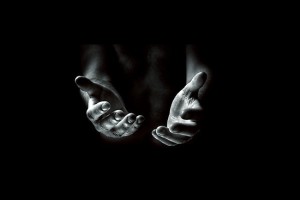Transforming Ourselves: Eshet Chayil (Part 18)
By Sara Esther Crispe: February 7, 2016: Category Decoding the Tradition, Inspirations
Vatakam beod layla vatiten teref lebeita vachok lanaaroteha
“She rises while it is still night, and gives food to her household and sets out tasks for her helpers.”
 My husband and I counsel a lot of individuals and couples who are facing different challenges. All too often though, when it comes down to someone needing to work on him or herself and shift their thoughts, speech or action to change their reality, the response is “Well this is who I am. I can’t change.”
My husband and I counsel a lot of individuals and couples who are facing different challenges. All too often though, when it comes down to someone needing to work on him or herself and shift their thoughts, speech or action to change their reality, the response is “Well this is who I am. I can’t change.”
It is a great excuse. It is an easy escape. It resolves us of any responsibility or accountability or ability to make things different. But it simply isn’t true. And when we rely on that falsehood, we cheat ourselves, those around us and ultimately the world that we were created to impact.
Who we are is not static. It is not fixed. It is changing. Constantly.
But it takes work. Work which has dividends and rewards that far outweigh the investment. But work nonetheless.
The previous article discussed how the woman of valor would rise while it is still night, not only facing the darkness but utilizing it in order to transform it. She did not hide under the covers, waiting for the light in order to rise to the occasion, she did what needed to be done because it needed to be done.
And this is the perfect way of describing Batya, the daughter of Pharoah, who the verse represents.
But let’s back up. When we are first introduced to her, she is not referred to as Batya. Rather, she is simply described as Bat Pharoah, the daughter of Pharoah. She has no identify of her own. She is the child of this man whose cruelty is known and feared the world over.
She is raised with someone who takes pleasure in causing pain, and whose mission is to construct hardship after hardship to inflict on the Jewish people. He is the most powerful man in all of Egypt. He is the king. The ruler. And his word is absolute.
When he decrees that every single Jewish male born should be killed by being thrown into the Nile river, there are no objections. No one would dare interfere or contradict his ruling.
And yet, it is his very own daughter, his own flesh and blood, that proves that where we come from need not determine where we go. More so, that who we have been is not the precedent for who we can be.
It is hard for children to have their own opinions when what we think of as right or wrong is largely determined by what our parents teach us to be the case. Our parents are all-knowing, all-powerful and infallible. Until they aren’t. And recognizing that reality is a harsh blow. Realizing that my mother or father may be wrong, that my opinion might have validity, or that I don’t want to follow in their footsteps, is a very difficult stage to reach.
We see that even in the worst, most twisted and dysfunctional of homes, children often take responsibility for their abuse because it is easier to believe that they did something wrong and to deserve it than to believe that their parents would want to cause them pain and suffering.
And more so, there is always the fear that children will grow up to mimic what they see. If it was done to me then I can do it to another. If my mom drank then I can drink. If my father hit me than I can hit my son. On and on.
Yet it doesn’t need to be that way. There is nothing that predetermines that because we were raised one way that we need to repeat any destructive cycle. Not only don’t we have to. We simply cannot.
At some point in Batya’s childhood she realized that what she was being taught was not what she believed. It was wrong. And she wasn’t going to do it.
So she decided to go against all she knew, all she was raised with, all that was comfortable and familiar, and change to her core who she was. She was going to convert to Judaism. Not only would this be the ultimate slap in the face to her father, but it would be the most transformative thing for her life.
She knew she had to immerse in the mikvah in order to convert, and she chose to do so when it would go unnoticed. She therefore rose while it was still night, and she snuck out of the palace to go to the Nile river to become a Jew.
While there, on the banks of the river, she heard the sounds of a crying baby. She clearly knew her father’s sick decree and understood immediately that a Jewish baby boy was in the water. While she had come thinking her reason for being there was for herself and her conversion, clearly her mission was to save a life. And as we know, not just any life, but that of Moses, the leader of the Jewish people.
But there was a problem. He was too far away. It was dark and she couldn’t see him and wouldn’t be able to reach him. But she was determined to save his life, so even though not rational or practical, she stretched out her arm.
And miraculously, her arm extended itself, many times over, and she was able to grab him and save him (Talmud, Rashi).
But the miracle is not just that she reached him when he was impossibly far to reach. The miracle is that she even tried.
It is so easy when something is out of our reach to just give up. What is the point of stretching ourselves when everything points to failure? And yet, she succeeded because she tried. She reached him because she stretched herself. It was not her ability that made it possible, but her desire.
We read stories like this all the time. The mother that manages to lift a car because her baby is trapped underneath. The guy who jumps into the train tracks to save a man who has fallen, even though a train is speeding his way. There are times that we believe so strongly in what needs to be done that we ignore the obstacles in the way. And when we refuse to see the surrounding darkness, we create the light that makes that darkness disappear.
As will be discussed in the next article on the letter Vav that begins this verse, the Vav is all about connection. It is the hook. And when Batya puts out her arm, the outstretched arm that physically resembles a Vav, she connects with the Jewish people and with herself in the deepest of ways.
 And her impact is never forgotten. For it is the name that she gives this baby boy that is how he is called throughout the rest of the Torah and we are told that even G-d called him by no other name (Midrash Rabbah). She names him Moshe (Moses) for she drew him from the water, “m’hamayim meshitihu” (Exodus 2:10).
And her impact is never forgotten. For it is the name that she gives this baby boy that is how he is called throughout the rest of the Torah and we are told that even G-d called him by no other name (Midrash Rabbah). She names him Moshe (Moses) for she drew him from the water, “m’hamayim meshitihu” (Exodus 2:10).
But it is not only his name that is changed but hers as well.
For she is no longer Bat Pharoah, the daughter of Pharoah, but rather Batya, which is the daughter of G-d. For G-d is her true Father, the One who guides her, educates her, and teaches her who she truly is, who she always truly was and who she is capable of becoming.
http://www.interinclusion.org/inspirations/the-transformation-of-connection-eshet-chayil-part-19/
http://www.interinclusion.org/inspirations/transforming-darkness-into-light-eshet-chayil-part-17/
Transforming Ourselves: Eshet Chayil (Part 18),














;)
;)
;)
;)
;)
;)
;)
;)
;)
;)
